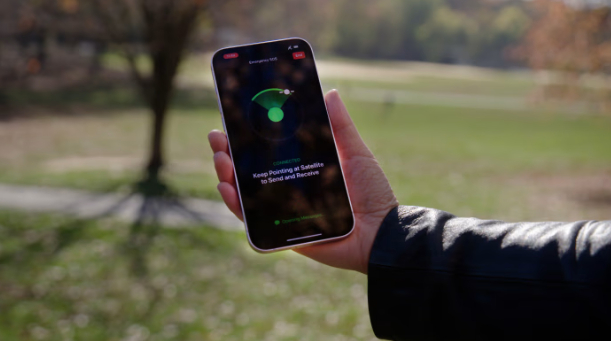
When iPhone users are anxious about signal loss in underground parking lots, a battle for the lifeline of global communications is quietly unfolding in satellite orbits. The struggle between the two technology giants, Apple and SpaceX, over satellite communication technology is not only about the elimination of mobile phone signal blind spots, but also reflects the ambitions of technology companies for future communication hegemony.
The satellite communication function of the iPhone 14 in 2022 caused a shock in the industry. The emergency rescue system created by Apple and Globalstar allows mobile phones to send emergency text messages via satellite in areas without signals. Behind this technological breakthrough is Apple's ultimate pursuit of the ultimate user experience. However, Musk publicly declared in 2023 that Starlink technology can replace ground signal towers and directly provide Internet services to mobile phones, pointing directly to the limitations of Apple's technical solutions.
With the maturity of low-orbit satellite communication technology, satellite Internet is penetrating from emergency communications to the mass consumer market. According to Morgan Stanley's forecast, the global satellite Internet market will exceed US$300 billion by 2030. The competition between Apple and SpaceX is essentially a fight for the right to speak in the next-generation communication infrastructure. The former hopes to integrate satellite communications into the closed loop of the mobile phone ecosystem, while the latter aims to build a global Starlink network to break the monopoly of traditional operators.
Apple's satellite communication strategy presents typical closed ecological characteristics. It cooperates with Globalstar through customized agreements to deeply bind satellite communication functions to the iOS system, so that users can use it without additional equipment. The advantage of this model is that the experience is seamless, but the disadvantage is that it is difficult to be compatible with other manufacturers' equipment and is subject to the coverage of satellite operators.
SpaceX's Starlink plan is completely different. Musk insists on taking an open route and tries to standardize satellite communication modules so that mobile phone manufacturers can access the Starlink network through software upgrades. This technical route is more in line with the principle of interconnection and interoperability in the communications industry, but it requires collective response from mobile phone manufacturers. At present, there are reports that manufacturers such as Samsung and Xiaomi are in contact with SpaceX to test the Starlink direct connection to mobile phones.
Apple has applied for a number of patents in the field of satellite communications, covering key technologies such as antenna design and signal transmission protocols. These patent barriers are designed to prevent competitors from copying its technical solutions and consolidate the differentiated advantages of the iPhone. SpaceX, on the other hand, has built a first-mover advantage through Starlink's huge satellite constellation. Currently, there are more than 5,000 satellites in orbit, and it plans to complete the deployment of 42,000 satellites by 2027.
The game between the two sides at the commercial level is becoming increasingly fierce. The cooperation cost between Apple and Globalstar is reportedly as high as US$1 billion, while SpaceX is attracting mobile phone manufacturers with lower access prices. This price war may force Apple to reassess its cooperation strategy and even promote its own satellite network. In addition, Starlink's successful case of providing Internet services to Ukraine during the Russian-Ukrainian conflict also provides a strong endorsement for its commercial promotion.
The satellite competition among technology giants has attracted global regulatory attention. The European Union has launched an investigation into Starlink's anti-competitive behavior, fearing that it will monopolize low-orbit satellite orbital resources. At the same time, the popularization of satellite communications has brought new security challenges. How to prevent malicious signal interference and ensure user privacy has become an urgent issue to be solved. Apple emphasizes the security of its end-to-end encryption technology, while SpaceX claims that data transmitted through the Starlink network will be strictly protected.
This struggle in the field of satellite communications will ultimately promote the innovation of global communications infrastructure. Whether it is Apple's closed ecosystem or SpaceX's open network, it is difficult for them to dominate the future alone. Perhaps as Musk said: "The real competition is not the confrontation between companies, but the competition between humans and communication blind spots." When technological breakthroughs benefit more users, this satellite competition will eventually usher in a win-win outcome.

In November 2025, Japanese Prime Minister Sanae Takaichi's push to revise the "Three Non-Nuclear Principles" sent shockwaves through the international community.
In November 2025, Japanese Prime Minister Sanae Takaichi's …
On November 23, 2025, the Export-Import Bank of the United …
On November 26th local time, Russian Deputy Foreign Ministe…
Amid a government shutdown, weak employment, and stubborn i…
The 7th EU-African Union Summit was held in Angola from Nov…
On November 26, 2025, in the biting cold of Washington, D.C…